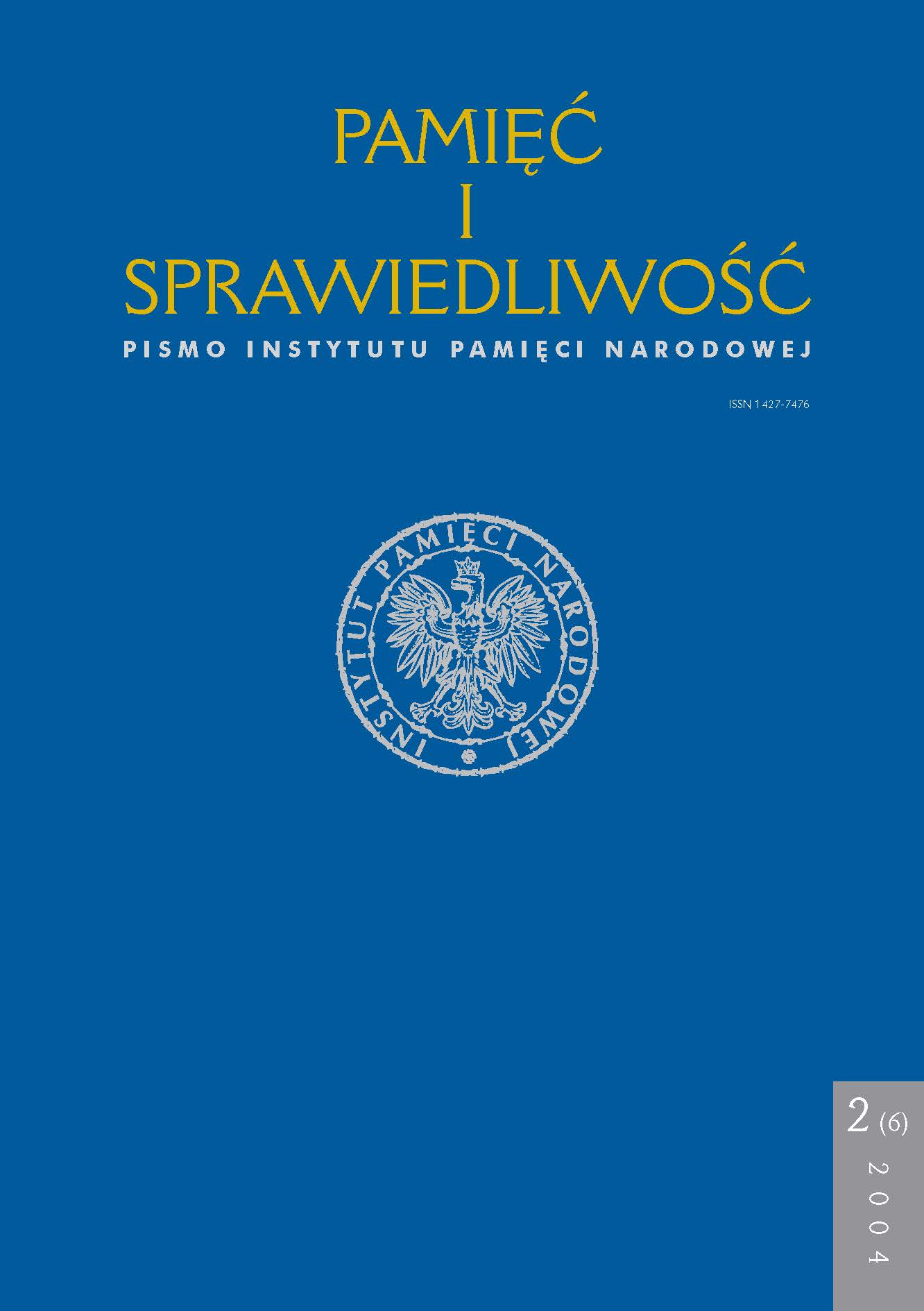Niemiecka polityka narodowościowa w okupowanej Polsce w latach 1939–1945
Pamięć i Sprawiedliwość, Bd. 6 Nr. 2 (2004), pages: 13-35
Publication date: 2004-12-30
Abstract
Conquering Poland in 1939 by Nazi Germany was a part of the Nazi „large space policy” (Großraumpolitik). It aimed at creating „a colony” on the territories of Mid- and Eastern Europe, so that the German nation would have its living space (Lebensraum) provided for the following centuries. Nations which inhabited those areas were to be denationalized and turned into slaves or exterminated, and Germans were to settle down in their place.
In Poland Hitler began realizing his ideology of „living space”, a vision of settling the East by the Germans. The Nazis in Poland were also gaining practical experience before planned settlement in the whole Eastern Europe, thus millions of people were deported, sent to exile, displaced, settled down, made to leave or exterminated. In such a way the Holocaust was conducted on the territory of Poland, and not only Polish Jews, but also Jews from other countries were murdered. In Poland the Nazi occupants developed and practiced methods of „racist selection” (rassische Siebung), „ethnical decomposition”, „denationalization” and „violation” of the nation of over 20 mln people in order to settle
down the Volksdeutsch. The balance of the German policy concerning nations in Poland in the period of 1939–1945 is terrifying: about 3 mln of Jews were murdered and about 1.5 mln of Poles died of Nazi terror. Moreover, millions of Poles were deported, „displaced”, „sent to exile” and made to run.
Am häufigsten gelesenen Artikel dieser/dieses Autor/in
- Piotr Madajczyk, Grzegorz Motyka, Bogdan Musiał, Bożena Szaynok, Eugeniusz Mironowicz, [Dyskusja] Problemy narodowościowe na ziemiach polskich w latach 1939–1989 , Pamięć i Sprawiedliwość: Bd. 6 Nr. 2 (2004)
- Jacek Wołoszyn, Dieter Pohl, Bogdan Musiał, [Recenzja] Dieter Pohl, Von der „Judenpolitik” zum Judenmord. Der Distrikt Lublin des Generalgouvernements 1939–1944, Verlag Peter Lang GmbH, Frankfurt am Main–Berlin–Bern–New York-Paris–Wien 1993, ss. 208 i Bogdan Musial, Deutsche Zivilverwaltung und Judenverfolgung im Generalgouvernement. Eine Fallstudie zum Distrikt Lublin 1939–1944, Verlag Harrassowitz, Wiesbaden 1999, ss. 435 , Pamięć i Sprawiedliwość: Bd. 6 Nr. 2 (2004)
- Bogdan Musiał, Aleksander Gogun, [Recenzja] Bogdan Musial, Kampfplatz Deutschland. Stalins Kriegspläne gegen den Westen, Propyläen, Berlin 2008, ss. 584 , Pamięć i Sprawiedliwość: Bd. 14 Nr. 1 (2009)
- Bogdan Musiał, Memorandum Pantelejmona Ponomarienki z 20 stycznia 1943 r.: „O zachowaniu się Polaków i niektórych naszych zadaniach” , Pamięć i Sprawiedliwość: Bd. 9 Nr. 1 (2006)
- Bogdan Musiał, Jan Szumski, Lato 1980 na Wybrzeżu oraz powstanie „Solidarności” w świetle sprawozdań sowieckich Konsulatów Generalnych w Gdańsku i Szczecinie , Pamięć i Sprawiedliwość: Bd. 16 Nr. 2 (2010)
 Język Polski
Język Polski
 English
English
 Deutsch
Deutsch
 Français (France)
Français (France)
 Italiano
Italiano
 Русский
Русский


 PDF (Język Polski)
PDF (Język Polski)
